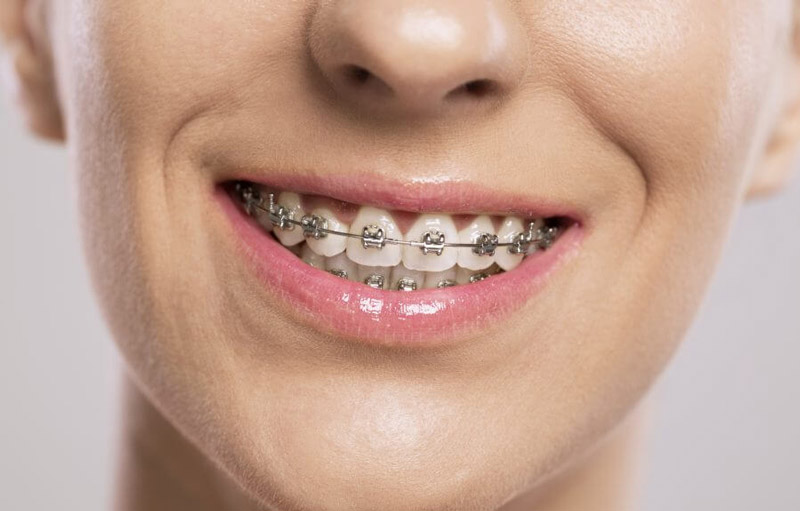News
The correlation between oral health and overall health
How does oral health affect overall health? Let’s find out more about the correlation between these two factors with Nha Khoa 2000.
Can oral bacteria affect the heart?

Studies show that people with gum disease are more likely to get heart disease
Studies show that people with gum disease are more likely to have heart disease than people with healthy gums.
Research by the US National Institutes of Health and Nutrition, conducted for 20,000 people, showed that people with gum disease or no teeth (due to gum disease) were 72% more likely to have cardiovascular disease, compared to the group of people without gum disease.
In another study, people with jaw bone loss due to tooth loss and gum disease were 2.8 times more likely to have a cardiovascular event.
Gum disease and diabetes
Increased blood sugar increases the risk of developing gum disease
Diabetes can reduce your body’s ability to fight infection. Increased blood sugar increases the risk of developing gum disease. Moreover, gum disease can make blood sugar control more difficult. Protect your gums by keeping your blood sugar levels as close to normal as possible.
Remember to brush your teeth after every meal, floss and gargle with antiseptic mouthwash daily. Visit the dentist at least twice a year. These are good habits that protects your oral health.
Dry mouth and tongue cause tooth decay
Sjogren’s syndrome is a disorder of the immune system identified by two common symptoms – dry eyes and dry mouth. Sjogren’s syndrome is often accompanied by other immune system disorders, such as rheumatoid arthritis and lupus. In Sjogren’s syndrome, the mucous membrane and secretory glands of the eyes (tear glands) and mouth are often affected first – resulting in a decrease in the amount of tears and saliva.
Saliva protects the teeth and gums from bacteria that cause tooth decay and gingivitis. Therefore, permanent dry mouth is prone to tooth decay and gum disease.
Stress and bruxism

NIf you are stressed, you may be at risk for dental diseases like grinding
If you are stressed, worried or depressed, you may be at higher risk for oral health problems. People under stress produce high levels of the hormone cortisol, which is harmful to the gums and body. Stress also leads to poor dental care; More than 50% of people do not brush their teeth or floss regularly when under stress. Other stress-related habits include smoking, drinking and grinding.
Osteoporosis and tooth loss
Osteoporosis affects all bones in your body – including the jawbone and can cause tooth loss. Bacteria from periodontitis, serious gum disease, can also break the jawbone.
A medication for osteoporosis – bisphosphonates – may slightly increase the risk of a rare condition called osteoporosis, which causes “death” of the jawbone. Therefore, tell your dentist if you use bisphosphonates.
Pale gums and anemia
Your gums may be sore and pale if you have anemia, and your tongue may be swollen and inflamed. When you have anemia, your body doesn’t have enough red blood cells, or red blood cells don’t contain enough hemoglobin. As a result, the body does not receive enough oxygen.
There are many different types of anemia and different treatments. Talk to your dentist to find the most appropriate consultation and treatment.
Eating disorders and tooth enamel wear

Anorexia can affect oral health
Your dentist may be the first person to notice signs of an eating disorder such as anorexia nervosa or bulimia. Stomach acid caused by repeated vomiting can erode tooth enamel severely. The vomiting can also cause swollen throat, affecting salivary glands, causing bad breath. Anorexia, bulimia and other eating disorders can also cause serious nutritional deficiencies that can affect oral health.
Thrush and HIV
People with HIV or AIDS may develop thrush, mouth warts, blisters, fever, sores and leukemia, which are white or gray patches on the tongue or inside the cheek. A weakened immune system and an inability to prevent infections is common among people with HIV. People with HIV / AIDS may also have dry mouth, increasing the risk of tooth decay and can make it difficult to chew, eat, swallow or talk.
Gum disease and arthritis

Gum disease and premature birth
If you are pregnant and have gum disease, you may be able to give birth prematurely. Inflammatory or infectious factors may be thought to be the cause of gum disease and premature birth. Pregnancy and related hormonal changes also worsen gum disease. Talk to your obstetrician or dentist to find out how to protect yourself and your baby.
What do healthy gums look like?

Healthy gums will be pink and firm, not red and swollen
Healthy gums will be pink and firm, not red and swollen. To keep the gums healthy, practice good oral hygiene. Brush your teeth at least twice a day, floss at least once a day, rinse your mouth with an antiseptic mouthwash once or twice a day, visit the dentist regularly and avoid smoking.






